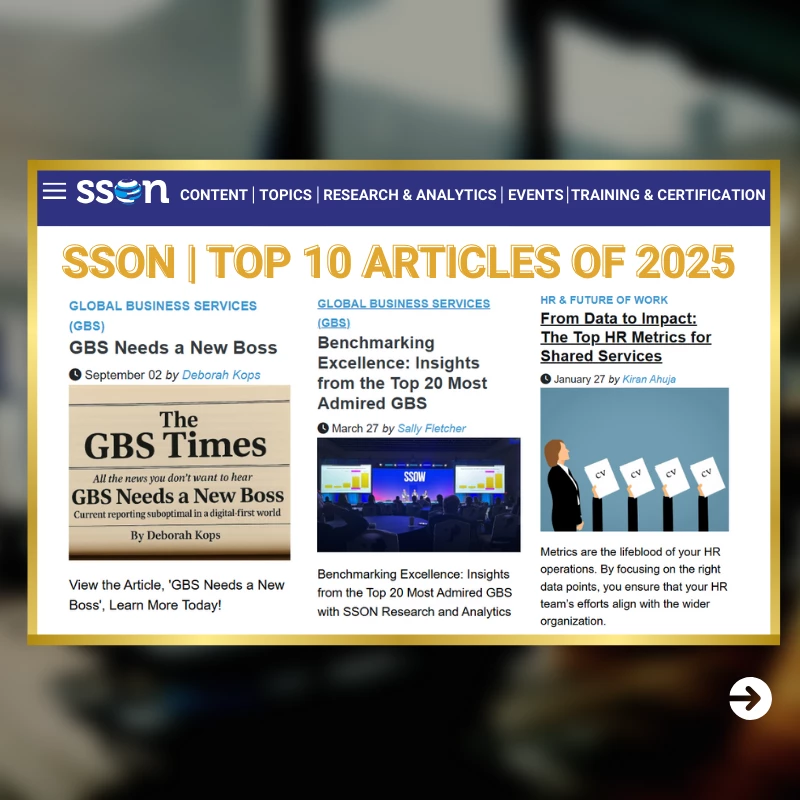What Shared Services Can Learn from Hospitals
Add bookmark
While the shared services concept has existed for decades, there are always opportunities to learn and gain knowledge. In this era of business volatility and uncertainty, one surprising source for insights shared services professionals can turn to is hospital operations, an industry that is no stranger to change.
Given the age and experience of hospitals, there is a lot shared services can take away, and there are several similarities between the two entities. For example, like shared services, hospitals are large-scale operations determining how to optimally manage patients (or employees).
Just as shared services have for the past several years, hospital systems are leveraging AI to make operations run more efficiently for both staff and patients. Philips Global Business Services (GBS) understands this relationship, given the company's work with many hospital systems and its own efforts to manage the company's internal operations.
Philips has automated and digitized many of the procedures in hospitals, similar to how shared services organizations (SSOs) and GBS are focused on doing the same for their own organization.
How Hospitals Are Using AI and Analytics
Today, hospitals have increased their use of tools such as artificial intelligence (AI) and predictive analytics to manage patients optimally and improve operational efficiency. These technologies are being used to automate standard repetitive processes, such as interpreting pathological reports, monitoring vital signs, and predicting patient outcomes. For example, hospitals use image-guided therapy machines that do a lot of image processing and give warnings that guide doctors on the right course of action.
Predictive analytics are used to analyze patient data and predict patient outcomes, which helps doctors provide the most effective treatment. Additionally, hospitals use analytics to manage inventory and supply chain, ensuring they have enough resources to serve all their patients. With technology advancements, analytics has become increasingly embedded in healthcare offerings and bundled with technology to provide real-time insights and support doctors in making critical decisions.
Some additional applications where AI has played a pivotal role in the health sector include:
- Medical innovations that aid pathologists in making accurate diagnoses by utilizing ML and artificial intelligence
- Chatbots for customer service
- Management of health records and elimination of data errors
- Automation of redundant healthcare tasks
How this Relates to Shared Services
According to SSON Research & Analytics, 39% of SSOs are at a mature level of automation, showing that there is still plenty SSOs and GBS can learn from hospitals' use of AI and predictive analytics, including:
- SSOs and GBS can apply supply chain analytics to optimize their own processes and operations, similar to how hospitals manage their inventory of resources like beds and medical supplies.
Use predictive analytics to forecast demand and capacity planning, as hospitals do to manage the flow of patients and the availability of surgeons. - Leverage AI-powered tools to automate repetitive tasks and streamline workflows, just as hospitals use automated pathology reports to interpret patient data quickly and accurately.
- Integrate analytics and technology to improve decision-making and enhance the overall customer experience, much like how hospitals leverage image processing and other technology to assist doctors in making informed decisions about patient care.
- By adopting these strategies that hospitals have already implemented, shared services and GBS can enhance their operational efficiency, reduce costs, and provide better services to their customers.
The Relationship Between Shared Services and Hospitals
Philips GBS is constantly supporting the enterprise in more ways than one. They offer analytics offerings in financial operations, supply chain, procurement, and finance. They also use analytics to predict overdue customers, prevent invoice mismatches and double payments, and improve order management.
Supporting internal functions is not the full extent of Philips GBS support capabilities. It also provides support to the connected care process, which entails treatment, diagnosis, physical care as well as post-operative check-ins.
Philips GBS provides assistance through analytics and AI to doctors and healthcare professionals. They aim to make their work easier by automating repeatable processes and providing signaling based on vast amounts of data. They also strive to improve order management and fulfillment by managing huge order books. Philips GBS is also offering analytics as a service to hospital tools such as ultrasounds to solve their business problems and recommend the right action to take.
































